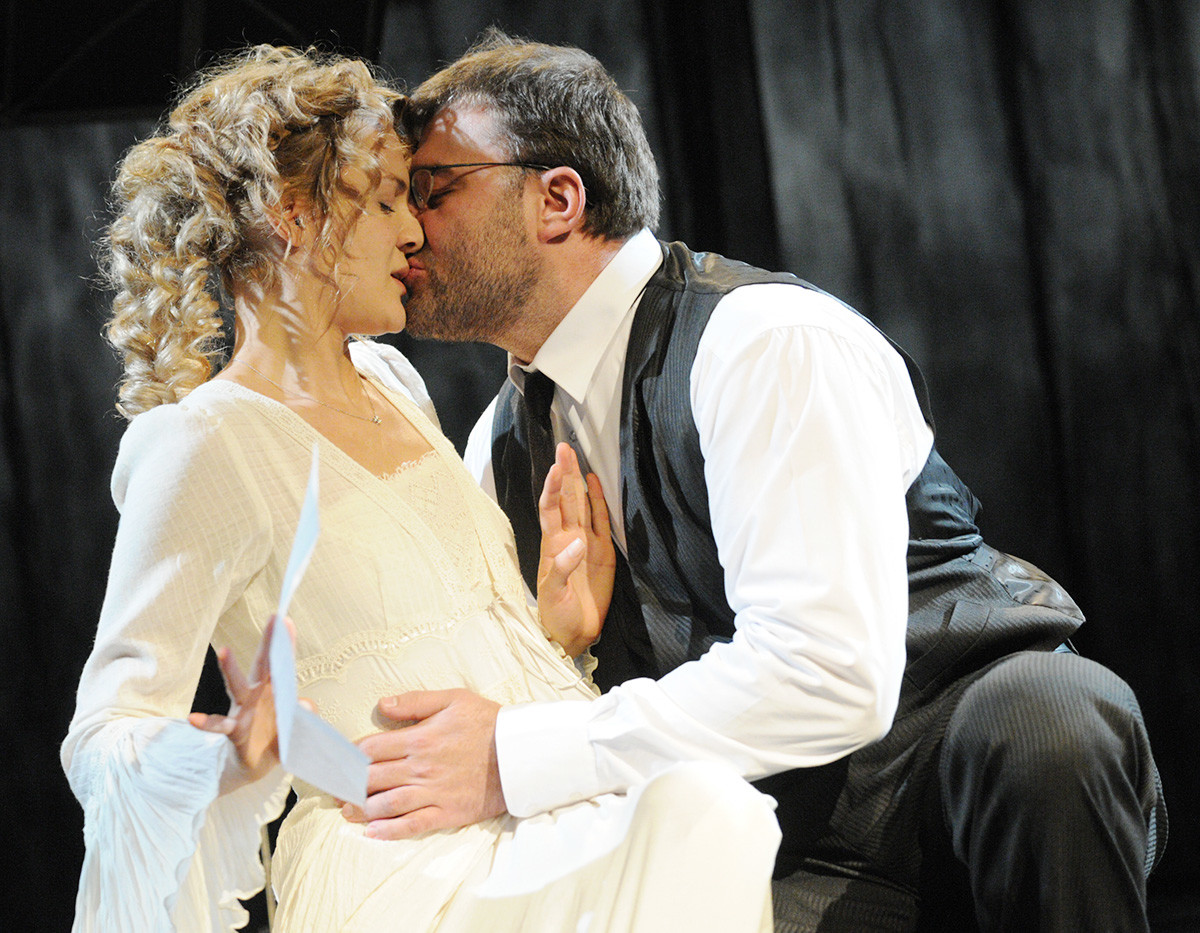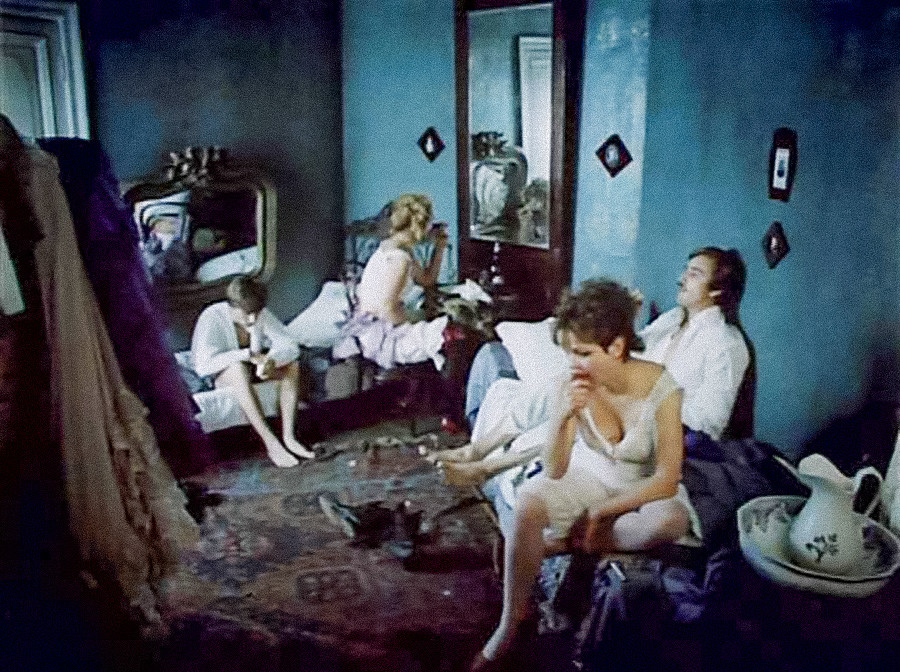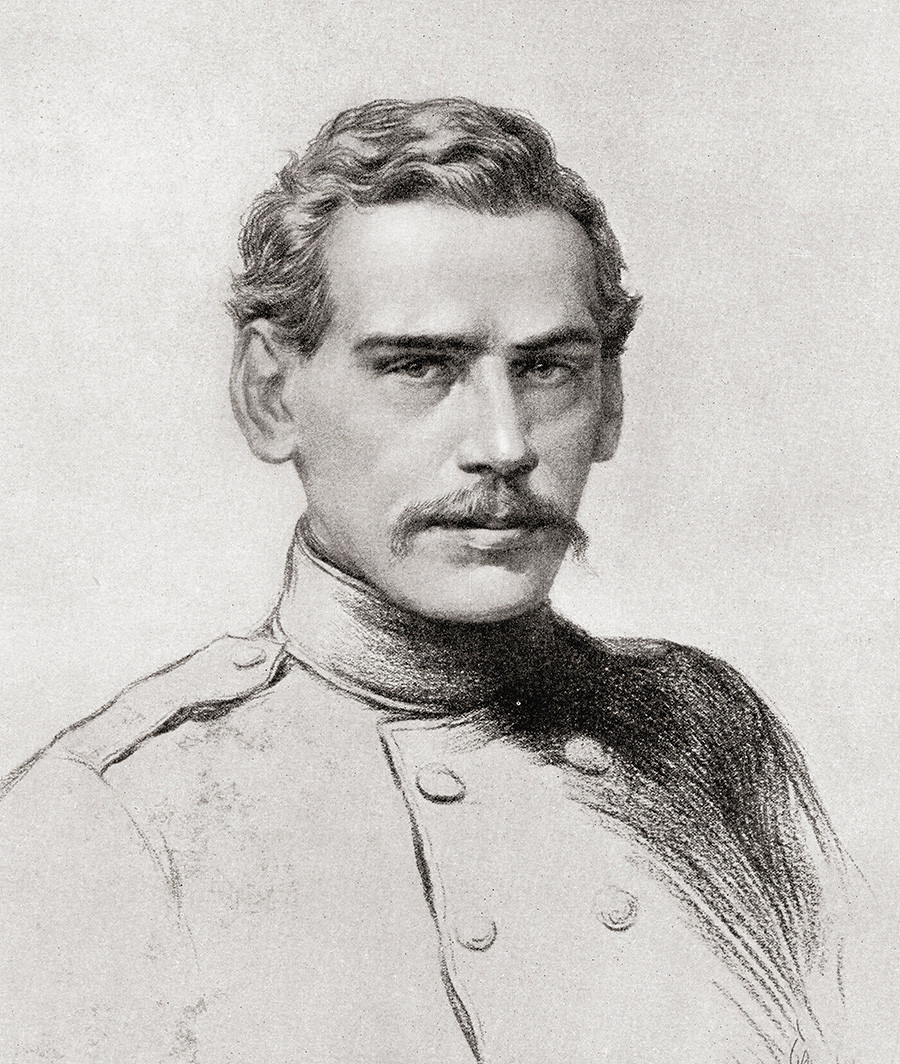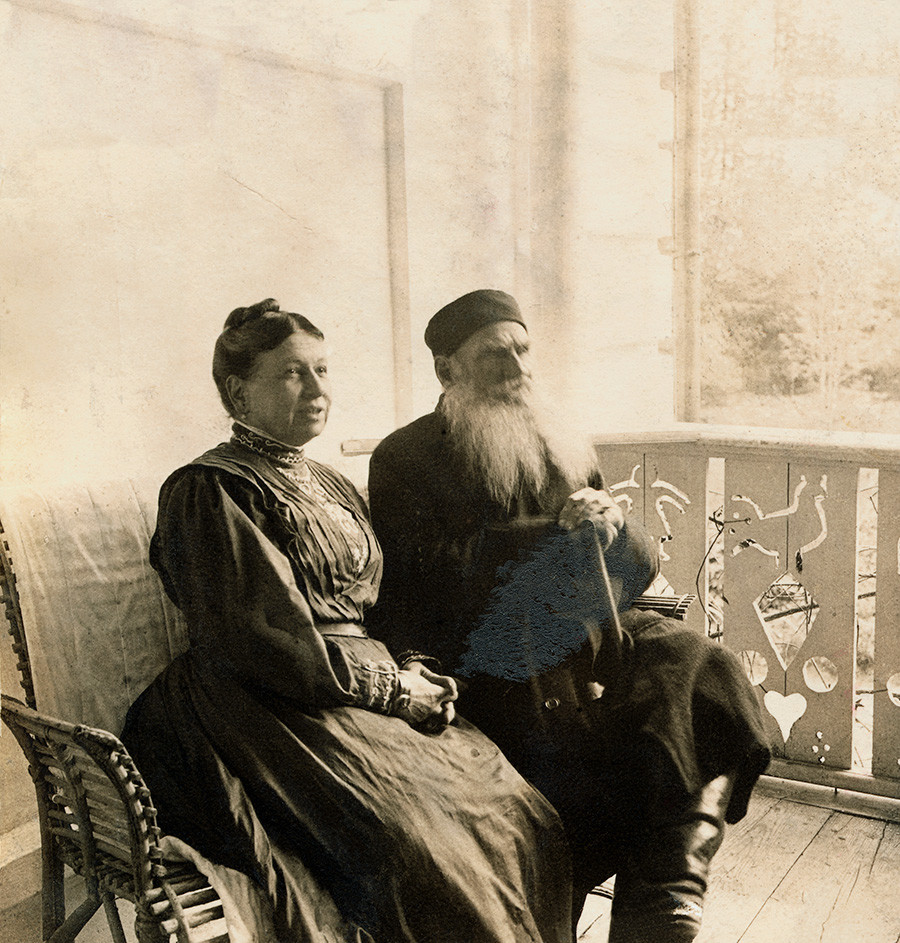Father of 13 children, Tolstoy was no saint before marriage (which, incidentally, remembers another saint: Augustine). But, after he was old, the writer decided that carnal love was harmful and wrote a chilling work about his new thoughts: Sonata Kreutzer.
At the end of his life, the writer Lev Tolstoy underwent a spiritual transformation and reviewed his concepts in relation to marriage and relations between men and women in general. In his scandalous soap opera "A Sonata Kreutzer", from 1890, which reflects his ideas at the time, he proposed that carnal love be completely abandoned. The book had a huge impact on the youth of the late 19th century.
There are those who consider “The Sonata Kreutzer” to be the best work of the count writer. Others, on the contrary, rejected Tolstoy's opinions, and Theodore Roosevelt went so far as to say that he was a man with a "perverted sexual morality".
"Honor Crime"
The protagonist, Vassíli Pozdnichev, tells a fellow traveler on the train that he killed the woman when, on returning from a trip one night, he found her playing music with another man. The verdict in the court was that the murder was provoked by adultery and, therefore, following the absurd morality of the time, he was acquitted.

MOSCOW, RUSSIA. . Actors Mikhail Porechenkov as Pozdnyshev and Natalya Shvets as Liza appear in a scene from ‘The Kreutzer Sonata’ by Leo Tolstoy staged by Anton Yakovlev at the Chekhov Moscow Art Theatre. Aleksêi Filippov / TASS
After that terrible episode, Pozdnichev goes through a “spiritual rebirth” and says that he realized the “perverse state of society”: "It was not that day that I killed her, but much earlier. "
Pozdnichev is a kind of Bentinho: the book never makes it clear whether the woman was unfaithful to him or not. Tolstoy is much more concerned with feelings than with actions. In the title of “A Sonata Kreutzer”, the author quotes the Gospel: “Anyone who looks at a woman, with the desire to possess her, has already committed adultery with her in his heart.”
“Tolstoy believed that the misfortune of his characters' family stemmed from their sexual promiscuity before marriage, which taught them to expect from family life the satisfaction of carnal desires above all. Disappointment leads Pozdnichev to hate his wife and be obsessive jealousy ”, according to Andrei Zorin writes in the book“ The life of Lev Tolstoi ”(still without translation into Portuguese).
Vicious circle

Still from the movie 1987 - - - -Mikhail Schweitzer, Sofiya Milkina / Mosfilm, 1987
Discussing the sex education of boys and girls, Pozdnichev notes with bitterness how secular society is "morally corrupt". Among people in your social circle, it is considered normal and even healthy for men to "indulge in debauchery" before marriage.
Pozdnichev openly shares his first sexual experience: together with his brother, he went to a brothel with a group of friends. "I remember that I was immediately overcome by a sadness so deep that I wanted to cry, to cry for the loss of my innocence, of my relations with the woman forever. Yes, my relations with the woman were lost forever. " It is interesting to note that this episode is autobiographical: Tolstoy had a very similar experience and described it in his diaries.
At the same time, women at the time were deprived of the "right" to have sex before marriage. But, in Pozdnichev's opinion, the “marriageable” girls are no better than prostitutes: their parents look for fiancés for them and do everything to guarantee an advantageous marriage, but all the hobbies of these girls, be it knitting or playing music, aim only to impress a future husband.

Tolstoi At Twenty Nine, As An Officer In The Crimean War. Leo Nikolayevich Tolstoy, 1828 – 1910. Russian Writer. From The Century Illustrated Monthly Magazine, May To October 1904.Getty Images
With regard to women's clothing, Pozdnichev makes a whole speech that millions of people worked in factories just to satisfy the whims of women and create dresses that could momentarily attract a gentleman. Pozdnichev says that it is a horrible thing for women to conquer men with lust. "Once she masters this resource, she abuses it and acquires a terrible supremacy over people."
Tolstoy disillusioned with marriage
Due to her bold thoughts about marriage and her daring to undermine family values, “A Sonata Kreutzer” was banned by censors immediately after publication. In addition, in the USA, the circulation of newspapers that published translations of the soap opera was also prohibited.
But it was precisely the prohibitions that increased the book's popularity incredibly. At the time, Tolstoy was already an international celebrity, but with “A Sonata Kreutzer” he captured the attention of all educated society, especially that of young people. The novel passed from hand to hand in secret, in handwritten copies (in a kind of precursor of the Soviet samizdat).
Pozdnichev describes how he fell in love with his wife: but, after a while, he saw it only as some pleasant boat ride or an attractive wife's dress. After the wedding, a “vile” honeymoon follows, which is nothing more than a “legalized addiction”. And it turns out that the husband has no idea what kind of person the wife is and is surprised to see anger or other new characteristics in her. They fight and argue, and the only thing that can reconcile them is the birth of children.

(Original Caption) Leo Tolstoy (1828-1910) is shown seated with his wife, Sonya. Undated - - -Getty Images
It is precisely in pregnancy and childcare that Pozdnichev (like Tolstoy) sees the predestination of women. That is why he is indignant to learn that, after the birth of the fifth child, doctors advise the woman not to have any more children - and sees this as a violation of the law of nature.
In addition, according to Tolstoy, a woman who does not plan to become pregnant, but continues to have sex with her husband and even uses contraceptives, is totally immoral. This was an issue that the writer took very seriously: his wife was also advised not to have any more children, but he was opposed to her taking "measures" to avoid becoming pregnant.
Pozdnichev believed that sexual abstinence was the best way to go. His traveling companion, an accidental listener to his life story, exclaims: But what about the human race? To this, the protagonist replies that he agrees with Buddhists that human life has no purpose and that it will end anyway, so there will be no harm in ending it because everyone will live according to "good morals".
"Tolstoy obviously rejected a positive meaning of marriage, giving a verdict on marriage: the union of a man and a woman consecrated by the Christian tradition", writes the researcher specialized in Count Pável Bassinski.
Emancipated women reading
In the 1890s, “A Sonata Kreutzer” was a source of continuous debate. Bassinski writes that the book "was one of the main points of contention of the decade". The end of the 19th century was a time when women's emancipation increased without precedent. Therefore, it is not surprising that readers have seen another ethical problem in the story: why a girl should remain a virgin before marriage, while her fiancé had the right to enjoy sexual experience and was even encouraged by society to do so. ?
After Tolstoy's novel was released, the issue of sexual morality started to be discussed in the press. One of the first Russian feminists, Elizaveta Diakonova, indignantly wrote in her diaries that any man "would consider it a shame for himself" to marry a woman who had sex with other men before him, while he himself considered it normal to have sex before wedding. “And it happens everywhere, everywhere! Both in Russia and abroad! Oh, my God, my God! "Wrote Diakonova.
Aleksandra Gúzeva




